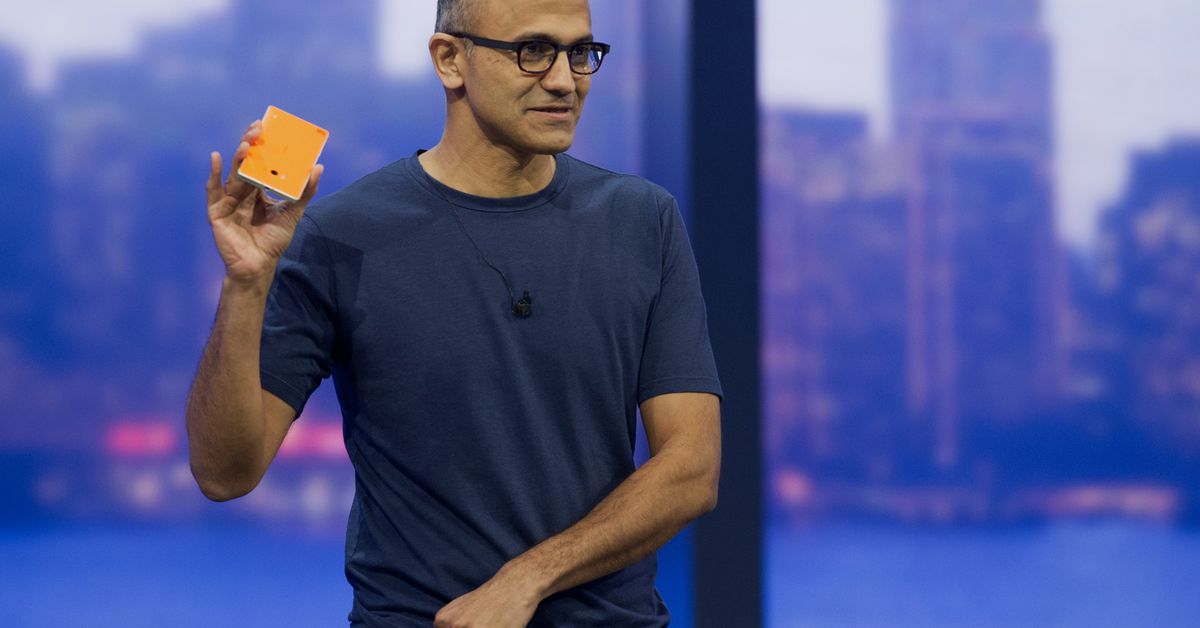Nadella, Gates, and Ballmer have all admitted to Microsoft’s mobile mistakes.
It is funny to me that they gave up on the Windows phone right when it was starting to actually kinda work and gain some market traction.
Windows phone was the best phone OS I ever experienced. Features were years ahead of iOS and Android.
name a few. please.
I’m open to being wrong but you need to provide evidence to sway me, because I’ve used windows phones and developed for them when they were desperate to get games in their app store and it was wretched early on. like comically bad. so whatever firmed up over the years, please, enlighten me, I’m genuinely curious where they were years ahead.
It missed custom apps but all the default phone apps were really great. The “people” app already had everything the android’s “contacts” app implemented in subsequent years (everything it has today) and also integrated with social networks so if you accessed a contact you could see all their posts from every social media in a custom timeline.
The “me” app also integrated all your social media notifications into one app, allowing you to post to all of them from the same place, see replies and that sort of stuff.
I don’t remember what it was, but the “mail” app had a feature that was my favorite thing in the whole WP7, but by the time WP8 came out Google had already managed to make it not wok with Gmail.
Calendar, Camera, even the keyboard. All those default apps were filled with amazing little things. Many of which we STILL don’t have in android today.
In third world countries the difference was even bigger. The keyboard suggested local words and names of local places (no system does that these days), the Nokia maps were far more reliable than Google’s (my town had been split in half by a new train line and Google maps messed up their data with that, as some streets that used to cross the whole town now had multiple unconnected segments - if you tried to follow Google directions to a McDonald’s in one of those segments, it would send you into a slum in another segment).
Plus, the whole UI was cool and the flipping tiles were quite useful.
Dark mode and live widgets.
Edit to add: https://www.howtogeek.com/809114/5-ways-windows-phone-was-ahead-of-its-time/
Windows Phone failed because there were no apps for it. There was no YouTube app, no Facebook app, no Twitter app, etc until very late or never at all. They should have just paid developers to make the apps so that people would buy the phones. The OS was great and worked on a wide range of hardware. It could have been a great enterprise solution and they seemed to be heading that direction but the lack of third party made it little more than A Microsoft feature phone.
Actually, the main cause it failed was because Microsoft bullied the manufacturers until they said enough and bailed out. So they were forced to buy a manufacturer to keep going (Nokia) then gave up halfway through after buying it.
Microsoft has stupid amounts of cash and could have kept Windows Phone going indefinitely, even at a loss. It’s how they broke into the console market, by keeping the Xbox going at a loss for a decade.
Yeah the lack of apps would have been a problem initially but everybody would have relented given enough time, and in the meantime most of the missing services could have been accessed in a browser.
deleted by creator
Dropping their plans for Continuum was foolish. Now we have fully featured Linux-based phones like the PinePhone that succeed where Microsoft’s plans for Continuum failed. (As in you can plug the PinePhone into peripherals for a desktop experience.)
Phones are pushing CPUs and RAM that are on par with laptops and desktops at this point. It seems a little superfluous if we’re not allowed to do real computing on these machines. Continuum was what I saw as the future of General Purpose Computing, by taking the locked down OS design of smart phones and giving them a desktop experience when plugged into peripherals.
Once every phone is also a desktop, you suddenly have opened all kinds of options for people who only have a phone, and not a full computer. Which, last I checked, is the majority of internet users who access it via their phones. Continuum would have been a literal game changer, and they gave up on it.
It would become a situation where everyone is like “I already have my phone, I’m not even going to bring my laptop unless I need it for specific function.” Because once your phone can be an on-the-go desktop, laptops will have less allure.
I don’t even care about other features. The tiling home screen of the OS was really nice to use and when used properly by the apps could result in a “live” OS unlike the iconographic interfaces of iOS and Android. The homescreen was also old-age friendly and really a pleasure to use.
The OS ram like really smooth on 512mb RAM, unlike their counterpart android phones which were struggling back then with 2-3GB RAM.
The lumias themselves had a ton of useful features like tap to wake etc, which didn’t consume much battery and in general the Nokia cameras were top notch for the time.
Basically, the OS got killed because of a chicken and egg problem with the apps, and the OS being from Microsoft, got a death knell because of the reputation. Also for some fucking reason, Microsoft decided that the already low userbase WP7s were to be depreciated rather than provide an upgrade path fo WP8 and WP10.




